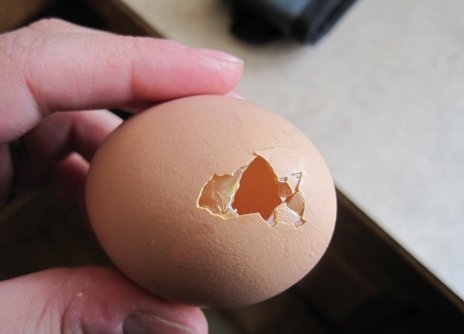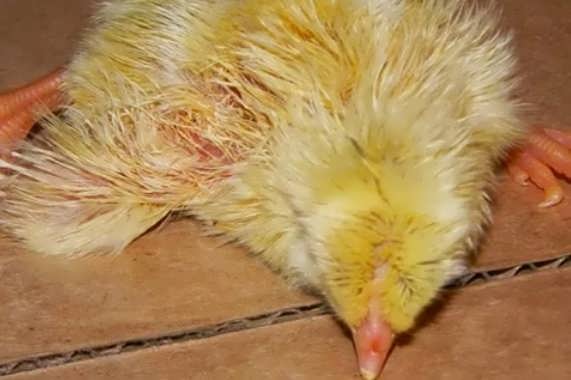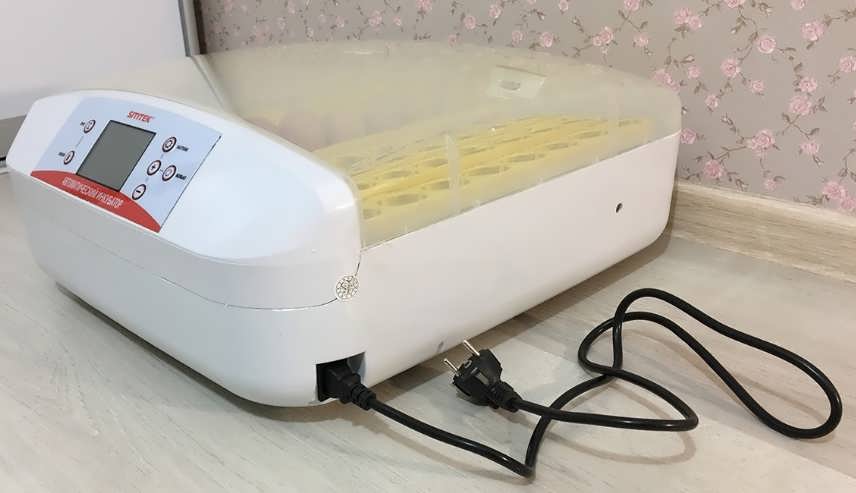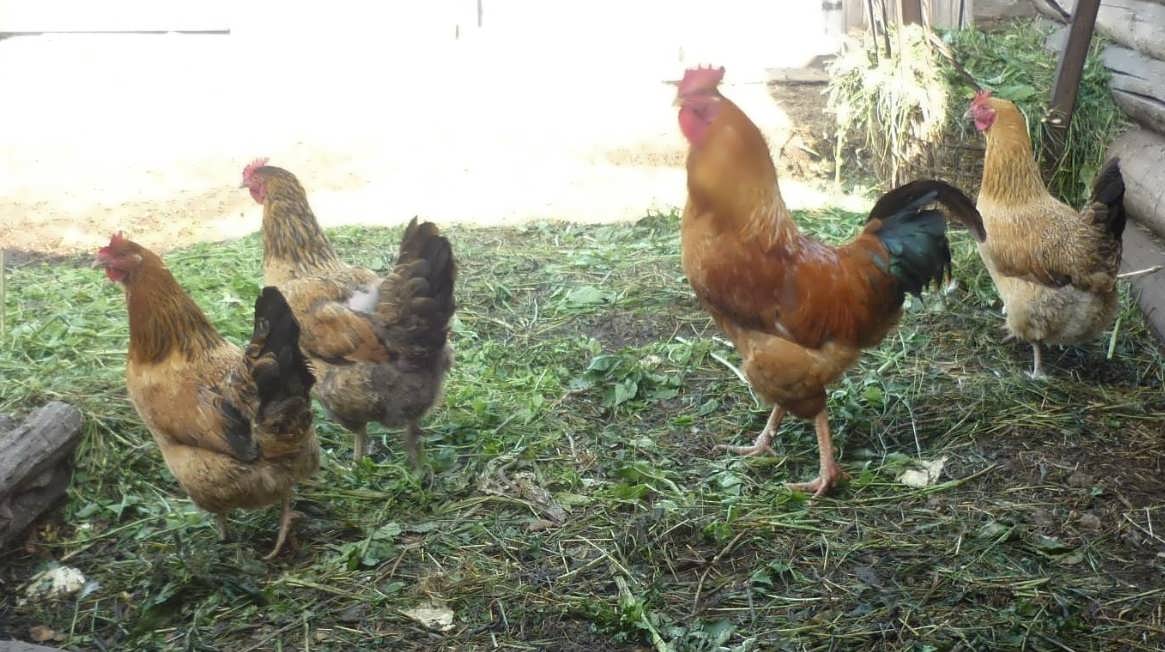When taking eggs from the nest , you can sometimes see a chicken egg without a shell. Is this alarming enough, or can the problem be solved? Of course you can. We will have to understand the causes and physiology of the chicken and the marketability of a high-quality product will be restored.
Egg without shell, reasons
The egg shell is a calcium shell. Under it there is a dense, white shell shell. It is she who is sometimes the only "package" for the product.
If a chicken laid an egg without a shell in a film, many chicken owners complain about the pathology. And by the way, this is normal if the chickens are fed enough. The diet of the bird allows you to lay eggs quickly and efficiently. But, in order to “give out” an egg, calcium is needed. If it is not enough in the diet - an egg without a shell.
The thickness and presence of the shell is affected by:
- age. A pullet hen lays eggs with a dense shell even if the diet is not balanced in minerals. She takes calcium "from herself", from the bones. Then the law of self-preservation operates, the threshold that the body does not allow to cross. Calcium from the medullary part of the bone cannot be constantly washed out and the eggs are without a shell;
- season. If spring, summer, autumn and a bird are on the pave, then it finds organic calcium for itself (worm, bloodworm, larvae). With a cellular content and the winter season, this source is not available;
- diet. If it is rich in proteins (proteins), the egg grows quickly. To pack an egg, calcium is needed and if the feeding is unbalanced, the eggs come out without a shell.
The shell contains:
- calcite (calcium carbonate) - 95%;
- sodium;
- magnesium;
- iron;
- manganese;
- potassium;
- copper.
Vit D adds strength and hardness to the joint.
Chickens lay eggs without shells, what should I do?
The soft shell of chicken eggs or its absence is fixable.
Older people can tell how chickens pecked at whitewashed houses. But this is not because they wanted to harm, but because chalk is calcium.
Therefore, there is a cure - pour chalk and let them peck. No. Why can't you feed with construction chalk?
- Chalk contains arsenic impurities. Heavy metal accumulates in the body;
- By binding to hydrochloric acid in the stomach of the chicken, calcium passes out of the body in transit, not having time to pass into the blood plasma;
- Calcium carbonate is not organic and its quantity must be several times greater to satisfy the need.
Sources of organic calcium are the basis of shell strength
Turning to a veterinary pharmacy, the owner will be advised a lot of drugs, which include trace elements. However, experience shows that such top dressing needs a lot and a lot, and the problem is solved slowly.
Organic calcium is a completely different matter. In the summer, everything is clear (everything that crawls and flies), the grazing chicken will provide for itself. Where to look for springs in winter?
Animal feed comes to the rescue:
- meat and bone meal;
- fish flour;
- slaughter waste (trips, pork skins, minced meat for animals);
- curdled milk, reverse (whey).
Is there an alternative?
Those owners who live near rivers and see how chickens collect shells never have problems with the hardness of the egg shell.
If shells are plentiful and chickens have free access to them, then problems with calcium are solved by themselves. You can buy top dressing in specialized stores, in the markets, or prepare it yourself.
When to feed?
If this question is still new for amateur poultry farmers, then production workers have long been friends with science and know that calcium begins to be absorbed after 14.00.
Therefore, if the hen eats shells and feeds containing calcium in the afternoon, it is absorbed better.
If there are a lot of shells, then it can always be in the feeders. If it is bought, then it makes no sense to send it in transit to the litter, it should be fed when the body needs it.
Compound feed is enriched with calcium at the expense of fodder limestone. It is difficult to find small parties for a private subsidiary farm, but you need to look. Mineral impurities of limestone balance the diet quite well. They are rich in micro and macro elements and contribute to a high-quality and durable shell.
When preparing a diet for chickens, you must:
- diversify it (introduce the largest number of ingredients into daily consumption);
- provide with sand and small pebbles (non-ground feeds come out in transit and are not absorbed by the body);
- monitor the good quality of feed (microscopic fungi and mycotoxins do not allow microelements and vitamins to be absorbed);
- provide chickens with sodium chloride (common salt without it, digestibility decreases).
Acid for chickens
Poultry producers have long practiced adding citric acid to birds' drinking water.
Such an additive allows the body to better absorb proteins, minerals and form a high-quality shell.
Can you eat soft shell eggs?
Can. Such eggs have only one drawback - they cannot be stored for a long time. If a normal egg can be kept in the refrigerator for 25-30 days, then without a shell you need to use it in 2-3 days.
An egg without a shell has no commercial value, but completely retains biological value. Such an egg cannot be incubated (although there is already experience and even the first chickens have been obtained).







I have been breeding chickens for a relatively long time, and when last month I saw eggs without shells, I was very surprised, I used to think that this was impossible. The problem recurred this month. I will try to solve this problem in the provided way and I hope that I will not see this again.
I have been breeding chickens for a relatively short time and had this problem last month. When I saw eggs without a shell, I did not immediately understand what it was and how it could be. So it's good that now I know how to deal with it. I'll start taking action as soon as possible and hope this doesn't happen again.